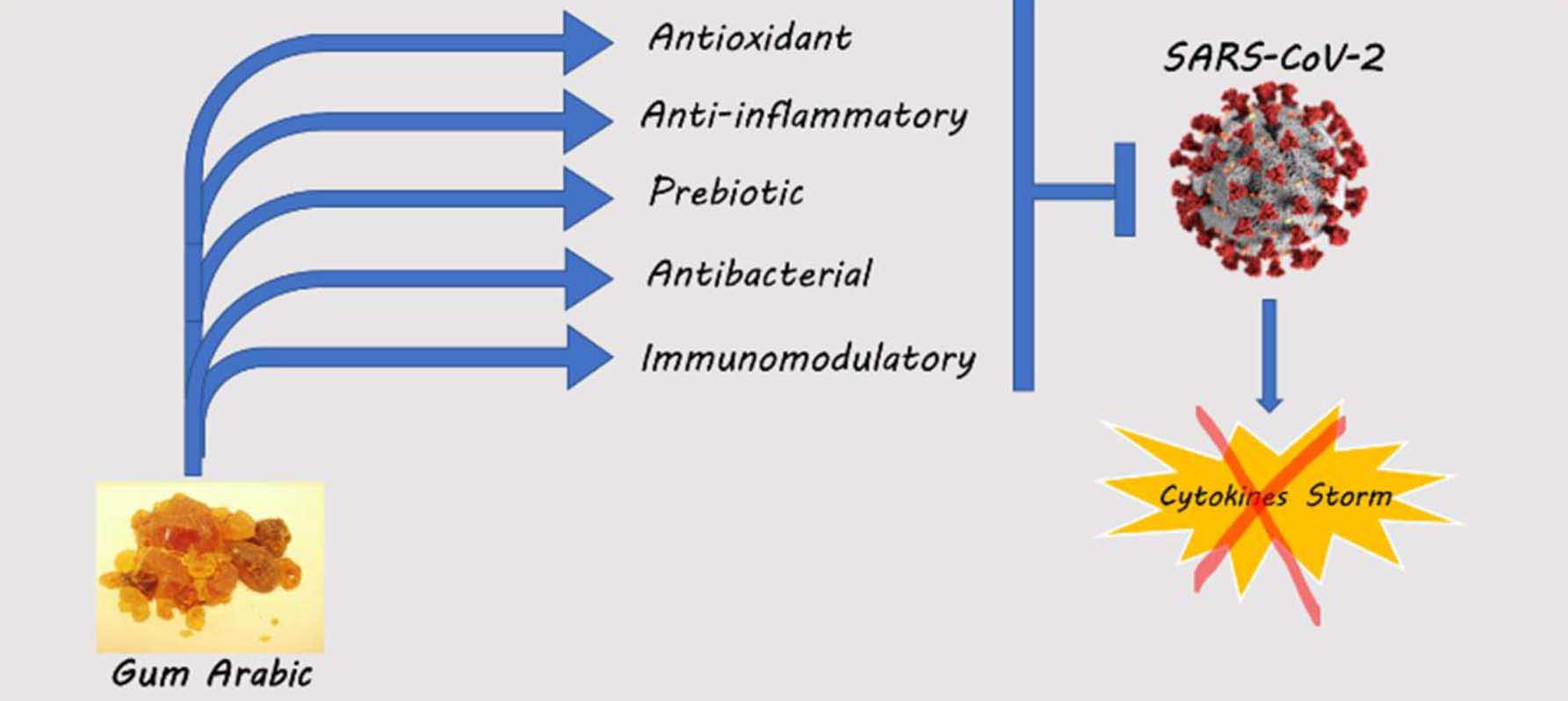The role of gum Arabic as an anti-inflammatory, antioxidant, and immune modulator in COVID-19: A review
DOI:
https://doi.org/10.31989/ffs.v2i10.1019Abstract
Background: Down-regulation of the lung inflammatory response seems to preserve pulmonary functions and improve survival in COVID-19. The key factor in overcoming the cytokine storm caused by COVID-19 by immunomodulation, rather than immunosuppression. Identifying the right mechanism to manipulate the immune regulatory networks in the lung—with minimal side effects—represents one of the many challenges in the treatment of COVID-19 disease. Immunomodulatory, anti-inflammatory, antioxidant, and gut-regulatory activities are the most significant properties of prebiotics. Therefore, it could be beneficial to consider them as an adjuvant dietary intervention among COVID-19 patients. Understanding the exact mechanism of prebiotic defense against infection and regulation of immune processes involved in COVID-19 are crucial for the development of novel therapeutic agents. Several studies considered Gum Arabic (GA) as a potent prebiotic with cytoprotective properties. This review aims to discuss and display the possibility of utilizing the beneficial effects of GA to modulate COVID-19 pathogenesis.

Keywords: COVID-19, Gum Arabic, Immunomodulation, dietary intervention, Gut microbiota, Anti-inflammatory, Antioxidant
Downloads
Published
Issue
Section
License
Any manuscripts or substantial parts of it, submitted to the journal must not be under consideration by or previously published in any other journal or citable form. Authors are required to ensure that no material submitted as part of a manuscript infringes existing copyrights or the rights of a third party. In submitting one's article in any form, the author has assigned the FFC publishing rights and has agreed to an automatic transfer of the copyright to the publisher. This is so that the FFC may create print option journals, for example, at the FFC’s discretion. If the author wishes to distribute their works by means outside of the FFC, for example within their community, they will have to place a request.
Correspondence concerning articles published in Functional Foods in Health and Disease is encouraged. While derivative works (adaptations, extensions on the current work, etc.) are allowed, distribution of the modified material is not allowed without permission from the FFC.